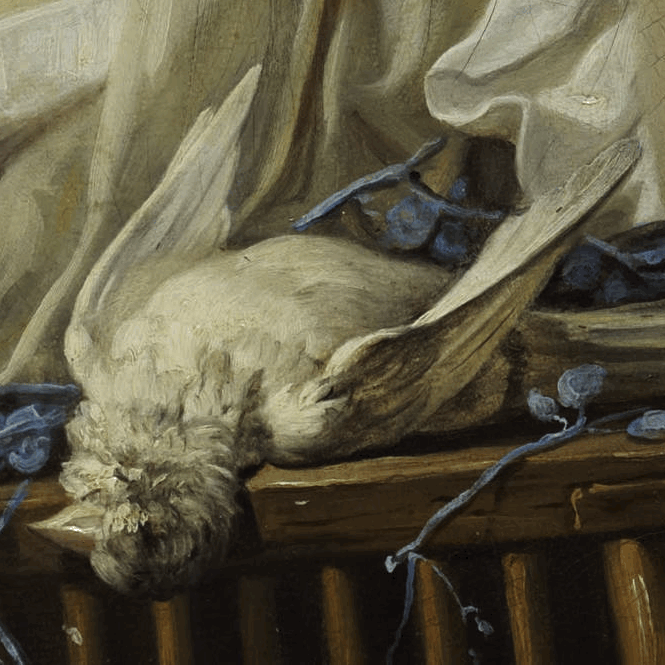The Obligatory Scene
Rarely used in writing classes today, when it is used the term obligatory scene typically refers to the plot’s climax.
No.
The obligatory scene, when one appears, is crucial in resolving the character/s arc and setting up the action for the actual climax of the story.
Most movies and books and comics don’t have obligatory scenes.
That’s because most movies and books and comics are crap.
They’re little more than a series of set pieces (if we’re generous; clichés if not) arbitrarily strung together.
Most movies and books and comics will have something like this:
MARY SUE
Guys, this is our time! We
have got to do this thing!
-- but that’s still arbitrary cliché crap.
The character says it because other characters have said similar things in similar stories and audiences seem to like it.
By and large,
it’s typically
empty rhetoric:
Sound and fury,
spoken by an idiot,
signifying nothing.
A true obligatory scene explains why a thing is going to happen, but it almost never directly describes the thing itself.
In The Guns Of Navarone the obligatory scene is the execution of the spy.
The spy themselves is actually one of the least important points of the story.
What’s important is what the team -- now with a new less-than-100%-trustworthy leader, filled with flakes and oddballs at odds with themselves and each other -- is going to do about it.
Not just what they are going to do, but why.
Killing the spy is accomplished with a single shot, over in the blink of an eye, and easily the least violent act in a 2 ½ hour long movie filled with crashing airplanes, exploding ships, massive firefights, and two big mammy-jammer cannons that can blow a battleship out of the water from miles away.
The scene makes all of the team members invested in the climax of the plot.
They will infiltrate that impenetrable fortress and blow those guns to smithereens because they now all share some degree of complicity in the mission.
No escape,
no retreat,
no surrender.
And mind you, the actual destruction of the eponymous guns is still over an hour away.
In Heat the obligatory scene is a cup of coffee shared by two professionals -- one a cop, the other a crook.
They don’t talk about anything that we’ve seen in the movie.
They don’t talk about what’s going to happen next.
They talk about themselves, who they are, why they do the things they do.
And they discover they like each other.
They share a very real, not at all begrudging respect for each other, professional to professional.
But they also know that despite this, they are professionals, each true to their own professional code.
And if -- when! -- those codes put them in direct opposition to one another, no amount of respect will stop either from pulling the trigger.
In Butch Cassidy And The Sundance Kid the obligatory scene is over with in a breath.
Etta, Sundance’s girl, says she’s going back to America, she’s not going to stay in Bolivia.
Earlier she told Sundance that she would do anything for him except be there to watch him die.
Butch and Sundance know this.
But they also know themselves, and they know they are incapable of changing, and they know they will stay in Bolivia and die.
In The Godfather the obligatory scene is the old don telling his son Michael that he loves him in the only way he knows how:
By warning him about the other mob families and how they will try to manipulate and betray him.
And Michael listens with respect to his father…
…but already his mind is working on plans for revenge, revenge to be held in abeyance only so long as the old don lives.
It’s a soft, quiet, seemingly extraneous scene.
But it explains everything about who they are, and what will happen next as a result of it.
In Shane, the obligatory scene is remarkably rich and complex.
After a farmers’ meeting, the homesteader family returns home with their hired hand, former gunslinger trying to go straight Shane.
The rancher opposed to homesteading is waiting for them with his sons and his hired gun.
Despite the tension between the two families, the rancher is there to make an offer to buy out the homesteader.
But that’s not what the scene is about.
In making his offer, the rancher speaks with genuine feeling about the pride he takes in the cattle spread he owns.
But that’s not what the scene is about.
As he speaks, the rancher relays his desire to pass on the rewards of his hard work to his sons so that his family will continue to prosper.
But that’s not what the scene is about.
What the scene is about is Shane and the hired gun silently getting off their horses while the rancher and homesteader speak, going over to the water barrel, and each taking a drink, while at no time breaking eye contact with the other.
It’s all about who they are and what motivates them, and without saying a word the hired gun lets us know he’s just there for the killing, getting paid is a bonus.
And Shane lets him know that to get paid, the hired gun will have to get past him first.
That’s an obligatory scene.
© Buzz Dixon



